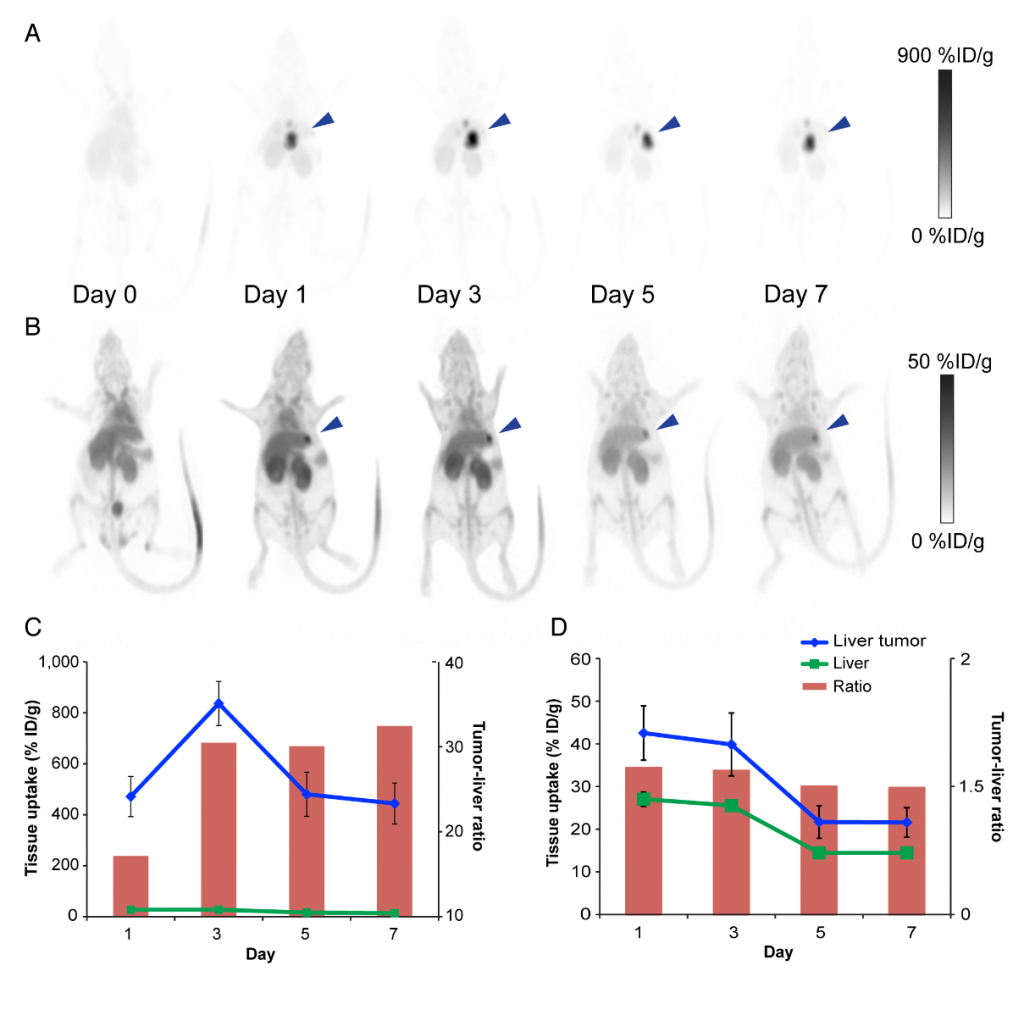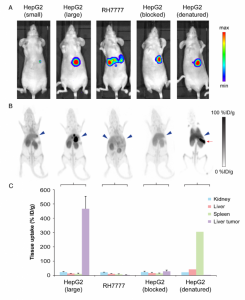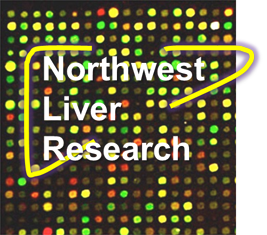Investigator Profile: James O. Park, MD, FACS
Dr. Park's research involves cutting-edge application of nanotechnology to improve the diagnosis and treatment of primary liver cancer. In this novel approach, Glypican-3 antibodies are used to target and deliver Zirconium-89, greatly enhancing the diagnostic sensitivity and specificity of hepatocellular carcinoma on positron emission tomography. This Glypican-3 antibody targeting technology is also being used with an alpha-particle emitting radioisotope, Astatine-211 as an innovative therapy for hepatocellular carcinoma.

Serial decay-corrected whole-body micro-PET images of mouse bearing (A) large HepG2 tumor (3.8 mm), and (B) small HepG2 tumor (< 1 mm). Blue arrowhead indicates tumor location. (C) Average tumor and liver activity obtained from micro-PET data for mouse with large HepG2 tumor, and (D) mouse with small HepG2 tumor.

(A) IVIS luminescent images prior to administration of 89Zr-aGPC3. (B) Selected micro-PET images of the same animals showing tumor concordance in HepG2 tumor-bearing animals, and lack of tumor uptake in RH7777, blocked, and heat-denatured controls. Signal saturation was permitted to enable comparisons between animals. Blue arrowheads indicate tumor location, red arrow indicates spleen. (C) Day 7 decay-corrected biodistribution of 89Zr-aGPC3 confirming low liver tumor uptake in RH7777, blocked, and heat-denatured controls.



